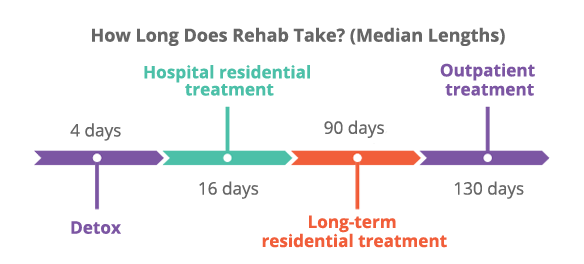4 Easy Facts About Getting Approved For Vocational Rehab When You Have A Bachelors Explained
Vocational rehab, also abbreviated VR or voc rehab, is a procedure which enables persons with practical, psychological, developmental, cognitive, and psychological specials needs, disabilities or health impairments to overcome barriers to accessing, preserving, or returning to employment or other useful occupation. [] Trade rehab can require input from a variety of healthcare specialists and other non-medical disciplines such as special needs work advisors and career counsellors.
Methods vary in between countries, however, due to the differing quantities of monetary and political support occupation rehabilitation receives. In 2008, the UN introduced the "International Convention on the Rights of Individuals with Disabilities" which supplied internationally recognised rights to people with impairments. It is often argued that this convention redefined the understanding of special needs adopted by governments and further changed the method in which disability associated concerns were approached.
However, it generally concentrates on improvements to the socialisation, health care and physical and mental wellbeing of the individual getting the services. People qualified for vocational rehab typically include those with long-term illness, mental health conditions, typical health issue and severe medical conditions. Solutions provided to those who are qualified commonly include financial backing, mental support and social assistance.
Frequently, health care programs depend on their successes to gain assistance. However, occupation rehabilitation is distinct as it is mostly dependent on company compliance and willingness to include themselves in the procedure. Consequently, it is often marketed in such a way that focuses more on business gains of the program. There is a big quantity of research study devoted to the development and enhancement of occupation rehabilitation.

It is believed to be helpful for individuals to return to work and to experience complete integration into society, which is usually helped by employment rehabilitation. Additionally, rehab programs motivate less individuals to depend on governmental financial backing by facilitating greater motion into jobs for people with specials needs who, typically, are left out from the labor force.
Developed countries such as America, England and Australia have had systems in place for rehabilitation services for several years. Developing nations, however, have historically been more focused on fighting diseases and hence, have had less resources to dedicate to the development of rehab programs. There is large quantities of stigma surrounding disability in developing nations - allowance for veteran vocational rehab when they are over 50.
The World Health Organisation, nevertheless, have actually executed programs within developing countries in order to much better develop their rehab plans for people with impairments. Whilst it is a popularly secondhand kind of intervention throughout lots of nations, vocational rehab is often criticised for being ineffective and not successful. In addition, some critics claim that there is not adequate focus placed on females with disabilities in Visit this site need of professional rehabilitation services.
How Sign Language Is Used In Being A Vocational Rehab Counselor - The Facts
This program was produced under the supervision of the Rehab Solutions Administration which was formed by the American federal government to assist in a range of programs for vocational rehabilitation. The President's Committee on Work of the Handicapped was formed in 1945, which later became the President's Committee on Employment of Individuals with Disabilities and today is referred to as the Office of Impairment Work Policy.
In the 1980s, tasks particularly for people with specials needs were produced and the idea of 'equal access' became more extensive. The 'Americans with Disabilities Act' was carried out in 1990 and paid for people with impairments the exact same set of rights that had historically been granted http://edwinikcs070.jigsy.com/entries/general/a-biased-view-of-when-do-vocational-rehab-payments-begin-in-maryland to women and marginalised groups. Currently, a variety of federal services exist to assist in trade rehabilitation in the United States.
The Office of Special Needs Employment Policy further facilitates job opportunity for people with specials needs. The Social Security Administration pays advantages to individuals with specials needs whilst the Rehabilitation Services Administration (RSA) administers grants to those qualified. Eligibility is identified, first of all, by whether a person's impairment is preventative of work. Moreover, the specific needs to gain from employment rehab services and further be able to succeed in employment objectives.
Some programs provide clients education services in combination with their rehabilitation, which has actually been revealed to improve their occupational outcomes. Other programs facilitate jobs in mental health services for people with mental health histories as they typically prove to be of great use in such task fields. In general, however, a strong link between effective recovery and preserving employment has actually been made.
Such programs consist of work assistance, business assistance and job retention. All veterans are supplied with a Vocational Rehabilitation Counsellor to create a rehab program. These counsellors tend to dictate the success of private rehab programs, especially through the relationship developed in between the veteran and the counsellor. Of people who utilize employment rehabilitation services in America, just 17% achieve success in their work.
Occupation rehab even more tends to cater to advantaged neighborhoods, with individuals from disadvantaged backgrounds less likely to reach out for trade rehabilitation services and are furthermore, less likely to be discovered to be eligible. There are various agencies in the United States that run VR programs, consisting of the following: VR state company or division Head office of firm or department Notes Alabama Department of Rehab Solutions (DRS) 602 S. how to get vocational rehab counseling certification with msw.
7th Ave., Suite 1930, Anchorage Address is for DOLWD main workplace in Anchorage. Arizona Department of Economic Security, Rehabilitation Solutions Administration (RSA) 1789 W Jefferson Street, Phoenix Browse this site Arkansas Department of Profession Education, Rehab Providers Division (RSD) 525 W Capitol Ave, Little Rock Arkansas Department of Human Providers, Division of Providers for the Blind (DSB) 700 Main Street, Little Rock California Department of Rehabilitation (DOR) 721 Capitol Shopping Center, Sacramento Georgia Vocational Rehab Agency 1718 Peachtree Street NW Suite 376 S Atlanta, GA 30309 New York State Education Department, Adult Profession and Postgraduate Work Provider - Vocational Rehab (ACCES-VR) 89 Washington Avenue, Albany South Carolina Vocational Rehab Department 1410 Boston Ave # 2138 West Columbia, SC 29170 Employment rehab has actually remained in practice in the UK because the early 1900s.
7 Easy Facts About How Does Va Vocational Rehab Work Explained

In 1946, the 'Egham Industrial Rehabilitation Centre in Surry' became open for public use, following the 2nd World War. In 1951, the National Health Service (NHS) had main control over rehab services, providing a variety of programs. Nevertheless, in the 1980s, the economic downturn in the UK saw a decrease in focus on occupation rehab.
From 2000 to 2002 the Vocational Rehab Association led a federal government funded research project into employment rehabilitation and how to better improve it in the UK. By 2003 nearly 2.7 million individuals in the UK were receiving federal government impairment benefits which the federal government might not sustain. Such great deals suggested the absence of professional rehab services throughout the UK.
Currently, a range of services remain in place to assist in professional rehab. In 2005, the Department of Health launched "The National Service Framework for Long-term Conditions". The report belonged of a federal government plan to improve support for those with long-term health conditions and worked closely with enhancements to the NHS, who are in part accountable for assisting those in need of employment rehabilitation.
However, it is commonly comprehended that the obligation for the success of professional rehab services is mostly with the company. This consists of creating healthy office environments, providing mentors, creating stable work hours and offering a large range of workplace necessities. As an outcome, the Vocational Rehab Association supports businesses who help with employment rehab for their workers.
